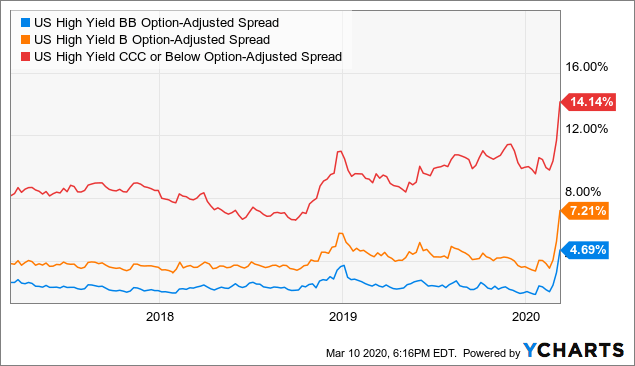
First, you need to understand how stocks are traded on the stock exchange. This includes a basic understanding of how companies, speculators, and bankers operate. This article will explain how the different roles impact on the prices of various stocks. If you are able understand the roles, you will be able take advantage of market conditions in a way that is most favorable to you.
Companies
Stock exchanges can provide liquidity for shareholders and investors in global financial markets. Stock exchanges can be used to raise funds, or to sell shares. Companies that use stock exchanges typically abide by a strict set of rules and regulations. In order to be listed on an stock exchange, companies must meet minimum standards. They must also register with the U.S. Securities and Exchange Commission and have a certain number outstanding shares. Nasdaq, the world's biggest stock exchange, will soon require that every company have at most one woman.

Speculators
Speculators refer to investors who are interested in making a profit from the fluctuations of stock prices. They use a variety of strategies to maximize their gains, and rely on tips and rumors, as well as their own instincts and analysis. Speculators are the driving force behind many businesses. Their capital provides capital for new companies, and helps troubled industries raise cash. However, they take huge risks and could suffer losses that exceed the initial investment.
Bankers
The stock exchange for bankers is a great option when you are starting your own investment company. There are a number of advantages to doing so. First, capital markets are an ideal fit for banks, especially those in the financial service industry. Bankers have the ability to build a strong portfolio with stock options. The exchange can also be used to make money. A variety of services and products are offered by listed companies that can be beneficial to the banker.
Traders
Traders trade shares on the stock exchange in order to make money. These traders use technical analyses to analyze price patterns. These traders seek to profit from short-term gains by purchasing and selling stocks. These traders tend to be classified in one of three categories. These traders may be individuals, institutions, or companies. Here are some examples. Find out how they invest in the stockmarket.

Investing
You can get an advantage on the stock market by investing using the stock trade. Stock markets are a place where companies are sliced up and investors can take part in the company's growth by buying a minority stake. Alejandro Nieto estimates that the stock markets are the best way to make a profit without putting all your money at risk. Although you can make a lot from the stock exchange, it is worth taking the risk.
FAQ
What is the difference between non-marketable and marketable securities?
The principal differences are that nonmarketable securities have lower liquidity, lower trading volume, and higher transaction cost. Marketable securities can be traded on exchanges. They have more liquidity and trade volume. They also offer better price discovery mechanisms as they trade at all times. However, there are many exceptions to this rule. There are exceptions to this rule, such as mutual funds that are only available for institutional investors and do not trade on public exchanges.
Non-marketable securities can be more risky that marketable securities. They usually have lower yields and require larger initial capital deposits. Marketable securities are generally safer and easier to deal with than non-marketable ones.
For example, a bond issued by a large corporation has a much higher chance of repaying than a bond issued by a small business. The reason is that the former is likely to have a strong balance sheet while the latter may not.
Investment companies prefer to hold marketable securities because they can earn higher portfolio returns.
Why is marketable security important?
A company that invests in investments is primarily designed to make investors money. It does this by investing its assets into various financial instruments like stocks, bonds, or other securities. These securities have certain characteristics which make them attractive to investors. They are considered safe because they are backed 100% by the issuer's faith and credit, they pay dividends or interest, offer growth potential, or they have tax advantages.
What security is considered "marketable" is the most important characteristic. This refers to the ease with which the security is traded on the stock market. If securities are not marketable, they cannot be purchased or sold without a broker.
Marketable securities are government and corporate bonds, preferred stock, common stocks and convertible debentures.
Investment companies invest in these securities because they believe they will generate higher profits than if they invested in more risky securities like equities (shares).
How are securities traded
The stock market is an exchange where investors buy shares of companies for money. Investors can purchase shares of companies to raise capital. Investors can then sell these shares back at the company if they feel the company is worth something.
Supply and demand determine the price stocks trade on open markets. The price goes up when there are fewer sellers than buyers. Prices fall when there are many buyers.
Stocks can be traded in two ways.
-
Directly from the company
-
Through a broker
Are stocks a marketable security?
Stock can be used to invest in company shares. This is done through a brokerage that sells stocks and bonds.
You could also invest directly in individual stocks or even mutual funds. In fact, there are more than 50,000 mutual fund options out there.
The difference between these two options is how you make your money. Direct investments are income earned from dividends paid to the company. Stock trading involves actually trading stocks and bonds in order for profits.
In both cases, you are purchasing ownership in a business or corporation. You become a shareholder when you purchase a share of a company and you receive dividends based upon how much it earns.
With stock trading, you can either short-sell (borrow) a share of stock and hope its price drops below your cost, or you can go long-term and hold onto the shares hoping the value increases.
There are three types: put, call, and exchange-traded. Call and put options allow you to purchase or sell a stock at a fixed price within a time limit. ETFs, which track a collection of stocks, are very similar to mutual funds.
Stock trading is very popular since it allows investors participate in the growth and management of companies without having to manage their day-today operations.
Stock trading is a complex business that requires planning and a lot of research. However, the rewards can be great if you do it right. It is important to have a solid understanding of economics, finance, and accounting before you can pursue this career.
What is a Stock Exchange, and how does it work?
Companies sell shares of their company on a stock market. Investors can buy shares of the company through this stock exchange. The market decides the share price. It is typically determined by the willingness of people to pay for the shares.
Companies can also get money from investors via the stock exchange. Companies can get money from investors to grow. Investors buy shares in companies. Companies use their money for expansion and funding of their projects.
A stock exchange can have many different types of shares. Some of these shares are called ordinary shares. These are most common types of shares. These shares can be bought and sold on the open market. Prices for shares are determined by supply/demand.
Preferred shares and debt securities are other types of shares. Priority is given to preferred shares over other shares when dividends have been paid. Debt securities are bonds issued by the company which must be repaid.
Statistics
- Ratchet down that 10% if you don't yet have a healthy emergency fund and 10% to 15% of your income funneled into a retirement savings account. (nerdwallet.com)
- US resident who opens a new IBKR Pro individual or joint account receives a 0.25% rate reduction on margin loans. (nerdwallet.com)
- The S&P 500 has grown about 10.5% per year since its establishment in the 1920s. (investopedia.com)
- Our focus on Main Street investors reflects the fact that American households own $38 trillion worth of equities, more than 59 percent of the U.S. equity market either directly or indirectly through mutual funds, retirement accounts, and other investments. (sec.gov)
External Links
How To
How to Invest Online in Stock Market
You can make money by investing in stocks. There are many ways you can invest in stock markets, including mutual funds and exchange-traded fonds (ETFs), as well as hedge funds. The best investment strategy depends on your risk tolerance, financial goals, personal investment style, and overall knowledge of the markets.
To be successful in the stock markets, you have to first understand how it works. Understanding the market, its risks and potential rewards, is key. Once you are clear about what you want, you can then start to determine which type of investment is best for you.
There are three major types of investments: fixed income, equity, and alternative. Equity refers to ownership shares of companies. Fixed income means debt instruments like bonds and treasury bills. Alternatives are commodities, real estate, private capital, and venture capital. Each category has its pros and disadvantages, so it is up to you which one is best for you.
There are two main strategies that you can use once you have decided what type of investment you want. One strategy is "buy & hold". You purchase some of the security, but you don’t sell it until you die. The second strategy is "diversification". Diversification means buying securities from different classes. By buying 10% of Apple, Microsoft, or General Motors you could diversify into different industries. Multiplying your investments will give you more exposure to many sectors of the economy. You can protect yourself against losses in one sector by still owning something in the other sector.
Risk management is another important factor in choosing an investment. Risk management is a way to manage the volatility in your portfolio. A low-risk fund would be the best option for you if you only want to take on a 1 percent risk. On the other hand, if you were willing to accept a 5% risk, you could choose a higher-risk fund.
Learning how to manage your money is the final step towards becoming a successful investor. You need a plan to manage your money in the future. A good plan should include your short-term, medium and long-term goals. Retirement planning is also included. Sticking to your plan is key! Keep your eyes on the big picture and don't let the market fluctuations keep you from sticking to it. Your wealth will grow if you stick to your plan.